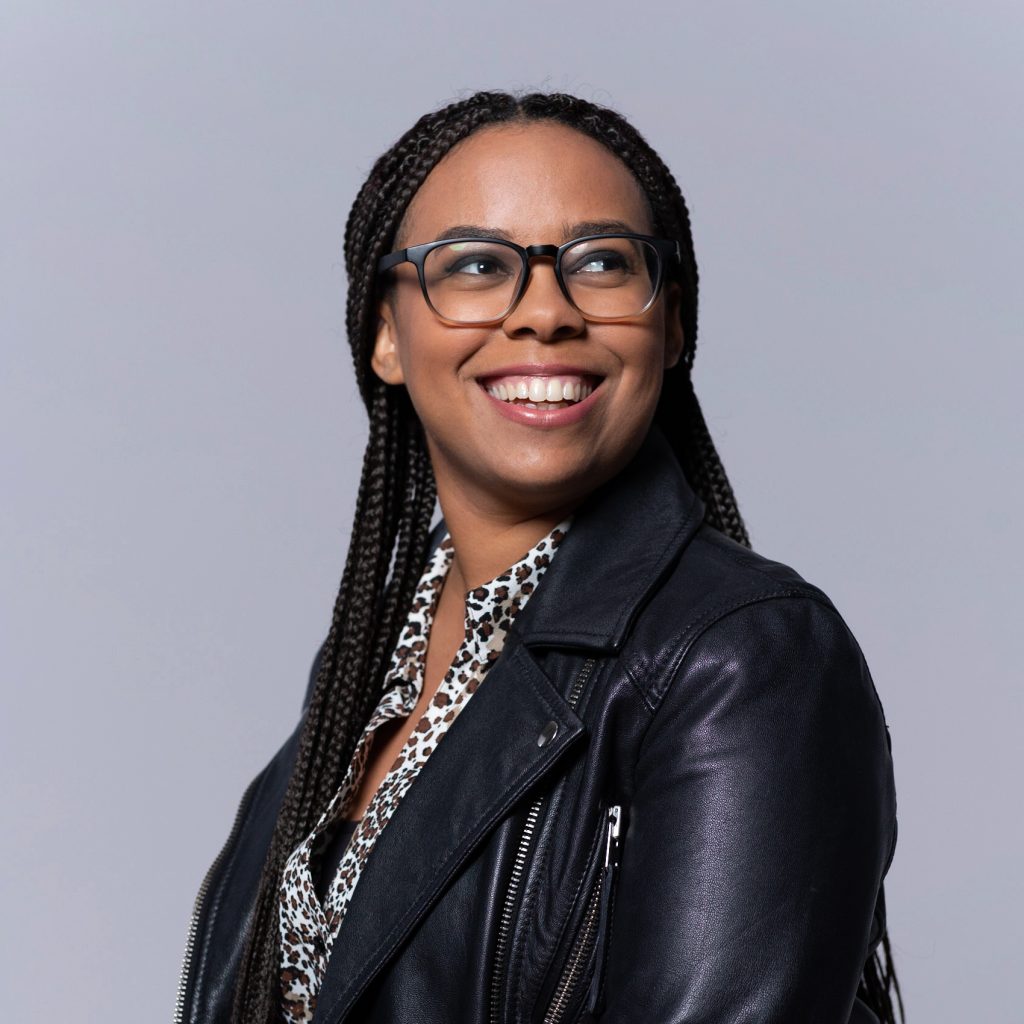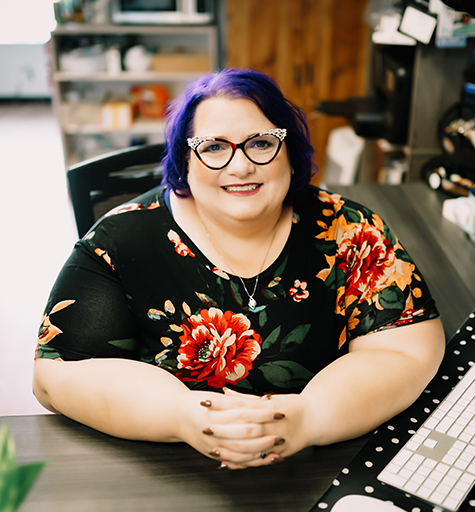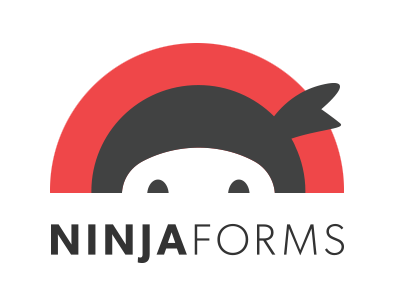Show Notes
In this episode, Allie and Michelle discuss how top-down decisions, changes, and culture shifts can effect entire teams, companies, and organizations. When looking at DEI, these items coming from leadership can mean that less pressure is put on individuals lower down on the professional ladder to make important changes.
Episode Transcript
Announcer:
Welcome to the Underrepresented in Tech podcast, hosted by Michelle Frechette and Allie Nimmons. Underrepresented in Tech is a free database built with the goal of helping people find new opportunities in WordPress and tech overall.
Michelle Frechette:
Hi, Allie.
Allie Nimmons:
Hi, Michelle. We swapped it up this morning or this afternoon.
Michelle Frechette:
I know. For sure. So people can’t see us, I know that, but you are splendid in a yellow sweater and it makes me feel all sunny and warm, so it’s always good to see you.
Allie Nimmons:
Nice. Well, yeah, it’s cold out here in Austin today. It was like 49 when I woke up. So I was like, I need sweaters. I’m wearing three sweaters right now. It’s crazy. But yeah, welcome back to the show, everybody. I never say that at the beginning. I never say, welcome to the show. We just kind of get into it. But yeah, we are back from our little Thanksgiving holiday break, which is great. I always miss talking to you when we skip a week.
Michelle Frechette:
I know, me too.
Allie Nimmons:
There’s a lot of things top of mind for me today. And so one of the things I really wanted to talk to you about, I’m just jumping right in. We talk a lot on the podcast about, if you want to call it grassroots efforts to make tech and make business and make our lives more accessible and more diverse and more inclusive. And we talk about what the everyday person can do and what you can do as a listener or what you can do for your business and things like that, what Michelle and I can do as employees, whatever. And today I’m thinking a lot about top-down effects and how important it is, not only for people at the very top of their field or business or high on the totem pole, high on that business ladder to prioritize all of these things that we’re talking about, but also for the people lower on that totem pole to hold the upper people accountable for those things.
And I feel like it’s, as I’m saying it out loud, it’s like, well, duh, right, no brainer, everybody should be prioritizing these things. But it’s so easy, I think in a lot of cases for the people at the top to kind of be like, “Oh, well that’s not my expertise. That’s not something I have to worry about.” Or, “Oh, I have a team that’s focused on that, so I’m going to let them do that.” Passing the buck, sharing the blame, not taking ownership of the things that need to get done. There’s a really great quote. Andrew Norcross gave a talk at LoopConf a couple years ago about community, and it’s one of my favorite things in the whole world. And there’s a quote in there that I don’t know if he made up or if he heard it somewhere else, but it was like a community is only as good as the worst behavior that leadership will tolerate.
And I think about that all the time because I think that we take so much of our culture, of our social cues, professional cues, inspiration mindset shifts, all of that from the top. And all of that, it trickles down from the people at the very top. And what they prioritize becomes what we prioritize and what they care about and see is what we care about and see. And when things like accessibility or diversity or inclusion are not a part of that culture that comes from the top down, then it A, makes it harder for people at lower levels to prioritize those things because they’re being told they shouldn’t. And it makes it easier for people at lower levels to ignore those things because they’re being told, “Well, if that guy up there doesn’t care, why should I?” Right?
Michelle Frechette:
Yeah, yeah. For sure.
Allie Nimmons:
So yeah, I was curious how you thought about that and how you approached that and what we can tell our loyal listeners about how to deal with that frustration. Because I’ve definitely dealt with that frustration of feeling like the people above me don’t care about the things that I want them to care about, and that’s a super hopeless feeling. So I wanted to hear your thoughts.
Michelle Frechette:
So I used to work at a massage school. I don’t know if I’ve ever talked about that here. I think I’ve told you that before. But for five years I was the campus director of a massage school. Now, if you’ve ever worked at a trade school or gone to a trade school, campus director is basically the dean, right? We don’t use those same kind of academic terms, at least not at massage school. And so I was the campus director of Rochester’s Massage School. The school doesn’t exist anymore. I left and it fell apart. What am I going to say?
Allie Nimmons:
Of course, it did.
Michelle Frechette:
But the first edition of the school was in Syracuse, and then they added a second campus in Rochester. And I had the expectation going into working at a massage school that it was going to be one of the most chill environments I had ever worked on. It’s a massage. I understand the school part, and that students will still be stressed, totally get that. But it’s about holistic medicine, it’s about holistic health and wellness. So I had this expectation that, not that it was going to be a walk in the park because work is work and recruiting and understanding school. And in the five years that I worked there, I helped them get accredited, become recipients of title, whatever it was, money so that students could get student loans. None of that was possible until I worked my tail feathers off at this place.
All of that to say it was the most toxic environment I’ve ever worked in. And that’s because there was an owner who was the most misogynistic megalomaniacal person I’ve ever worked for. I worked there for five years. It was the kind of thing where I cried in my car, driving to work in the morning, I cried in my car driving home for work because I knew I had to go back the next day. Friday, I couldn’t feel any joy or relief because Monday was coming. It was five years of that. I gained a ton of weight during those five years that I still had never lost because of the stress. And obviously, food is one of… If you’re telling somebody you gained weight because of stress, food is a coping mechanism. It’s not the best one, but it does work sometimes.
And the teachers were wonderful. The teachers were delightful people. The staff was wonderful. The staff was delightful people. The students had such great intention. And so all of that to say that I was the conduit between the owner and the rest of the school. But I could only buffer so much because I was only one person. And so the owner would make sweeping decisions, like one day, anybody could apply, you had to have a C average to get in. The next day it was, homeschoolers can’t apply. We won’t take a homeschool because their mom’s decision of what their grades were, it doesn’t count. And then it was only people with B or B+ averages in high school could get in. And so he kept closing the window, but expecting me to be able to have my staff recruit more people and have a higher retention rate so that people weren’t dropping out of school.
Well, trade schools people drop out of, there is turnover. I can’t think of other words right now. But all of that, because the person who drove everything and who set the tone for everything was such a horrible person to work for. Now, did he put beautiful artwork on the wall? Yes. Did the physical environment speak to amazingness and chillness and grandness, if you will? Yes, absolutely, all of that. The people that we hired, the people that were there, then the people I hired once I started in, were they awesome people who could do their jobs and do their jobs well? Yes.
You can create the best staff, you can create the best physical environment. You can give people the best tools possible. But if the person sitting at the top of that ladder is a dictator and has dictator mentality, then the entire system is going to fall apart because you’re going to burn through people, you’re going to create an environment that is not conducive to whatever your end goal is. In this case, it was minting massage therapists. In a WordPress environment, and an agency is creating sites for clients or managing that, or hosting or building WordPress plugins or whatever it is. If you’re top, the person sitting at the top of that ladder, the top of that [inaudible 00:09:35], the top of whatever you want to call it, is not a benevolent person. And I’m not saying they roll over and just take everybody’s whim and that everybody gets to be the boss and all of that. Of course not. Leadership though, is different than dictatorship.
Allie Nimmons:
Which is different also-
Michelle Frechette:
So if you see somebody-
Allie Nimmons:
I was going to say, which is different also from apathy, which is the complete opposite side of the spectrum of what you’re talking about, where you just let anything kind of slide and don’t ever stick up for people or make strong decisions. I feel like that can have a similar yet opposite effect in terms of… That’s just not good leadership. Neither one of those styles, dictatorship or apathy, are good leadership. And there’s two things in there particularly that you said that really stuck with me of making sweeping decisions, either sweeping decisions that are not well-founded or not well researched or selfish or whatever the case may be, or sweeping decisions that are harmful. I feel like people don’t always realize when they’re at the top of these systems, how one decision has this ripple effect, that affects everybody else. And it’s never a pure effect. It always goes through iterations and goes through changes, if that makes sense.
What am I trying to say? If you run a company and you decide… Okay, so your example of changing admission criteria and so on, that person probably didn’t really know how that was going to affect those students. And it would have effects that they wouldn’t anticipate down the line. And the other thing that you mentioned is you had to be the funnel for that person. And I think about when we think of a typical business leadership structure, you have one person at the top, maybe like the CEO, and then you have the CFO, the chief marketing person. You have maybe two or three or four people under them. And then each of those people has a bunch of people under them, and it forks off into this big tree. And the fact that, that one person at the top, it creates this gigantic ripple that then all of these other people have to process every single decision or every single thing that they make.
And your example made me think of when I was a kid, my mom worked at a afterschool performing arts school for kids. So after school you would go and you’d learn how to tap dance or there was acting classes or choir and performing arts. And it was in a primarily African American community. It was founded by two three actually African American men in the ’70s. My mom attended that school when she was little, and then she grew up and worked there as the office manager. And I attended that school when I was little.
And it was run by two of the original founders for the majority of that time. And it was this huge beautiful family where you did have students who would go through the program from ages eight to 18 and then come back and teach or come back and bring their kids. It was a super tight-knit family community environment. And when one of the founders passed away, the other founder was also getting up there in age, and he decided to retire. And they hired these two women who were businesswomen. They were career focused businesswomen. They were not artists, they were not necessarily creatives. They were not necessarily community builders. They were there to run a business.
And the attendance started dropping off. The parents started pulling their kids out. Teachers started to quit. My mom ended up quitting because she had been working there for 10 years, and she had been up for one of those top jobs and they passed her over. And then they offered her a raise, and that raise was the exact amount of money that she was already making. So they didn’t even bother to figure out what she was making to offer her more. They just gave her a random number.
And it was this huge shift in culture of we’re not prioritizing the community aspect. We’re not prioritizing the sense of, there was a lot of what I kind of think of as ethnic pride of this is a black owned school with black students, and that is very important to the culture of this place. That was not important anymore. The community outreach wasn’t important anymore. It was about running a business. And all of that, from just these two people, tore down 50 years worth of work. And I think about that all the time when I think about how I want to be a leader. What I think and want matters a lot less than what all these other people who are, quote, unquote, below me want, because I’m one person. Just because I’m higher on the ladder doesn’t mean that what I want and think somehow matters more than them. I’m one person in the sea of other people. Maybe I have skills or expertise or experience to guide and problem solve, and that’s what makes me a leader. But it doesn’t mean that I know what’s best for everybody.
And I get really frustrated when there are leaders who just think that they do know what’s best for everybody and don’t listen to what’s best. Because if those two women had sat down with my mom or any of the other adults who had gone through that program and now worked at the school and asked, “What do we need to be doing? What are the priorities? What are the problems? How can we lead you? How can we help?” That would’ve been huge. But they came in and they decided that they knew how to run a business. And it was awful. And it’s something I saw as a kid, it’s why my mom left that school. It’s why we left the State of New York because my mom was like, “I have to quit my job and we have to go somewhere else.” And it’s that ripple effect I’m talking about. That can be, I feel like, easily circumvented by just talking to people.
Michelle Frechette:
Absolutely. Because sometimes decisions are made from the top and there’s a solid reason. But if you’re not sharing that, then it just looks like dictatorship as opposed to something that’s not a whim. In the case of the massage school, it’s like the director wanted more money in his own pocket. And so we spent a lot of money to get accredited and to be able to take more students through having federal loans, that kind of thing. But at what cost? Because now there is no school anymore. The pandemic had a lot to do with that probably because it turns out that during three years of not wanting to touch people, those kinds of careers where people have to touch people might have taken a hit.
Allie Nimmons:
That’s rough.
Michelle Frechette:
And the thing about toxicity is it spreads. So it’s not like you stub your toe and your toe hurts. Right? That’s an injury. Toxicity gets into a system and spreads through a system. And so haven’t just injured one person. You have started a venom throughout an organization that affects everybody.
Allie Nimmons:
Yeah, absolutely. So yeah, we don’t have the solutions for all of these sorts of problems.
Michelle Frechette:
But communication, your idea of communication sure is.
Allie Nimmons:
The best bosses and the best managers I’ve ever had are the ones who consistently talk to me and make it very normal for me to come to them and say, “I’m struggling with this,” or “I’m uncomfortable with that,” or “I don’t think this is working.”
Michelle Frechette:
Yeah. Let me explain what’s happening. Exactly.
Allie Nimmons:
The ones that I don’t feel uncomfortable arguing with in a healthy argument. But I think that’s why you and I work really well together. No one of us is the leader of what we do, but we consistently, if we don’t agree on something, we feel super comfortable to say, “I don’t know about that, and here’s where I’m coming from.” And I can’t think of the last time that you and I had a misunderstanding about anything.
Michelle Frechette:
No, absolutely.
Allie Nimmons:
We consistently talk. And I feel like so much of where toxicity and resentment and things like that for leadership or upper management, all that stuff, so much of where that comes from is lack of communication, which then creates misunderstanding, which then creates an emotional reaction. If you and I misunderstand each other due to a technical whatever, that’s one thing, that’s not emotional. But once it’s a true, I don’t understand where you’re coming from and I feel like you’re being selfish, or I feel like you’re being this or that, that’s emotional. And that’s so much harder to overcome than just, “Oh, there was a typo,” or, “Oh, I didn’t get your email,” or whatever.
Michelle Frechette:
Absolutely. Or, “I misheard your text.” Any of those kinds of things. Absolutely. So open communication and creating a loop, creating an environment where people feel they can communicate up, not just receive communication from the top.
Allie Nimmons:
Yeah, absolutely. And that comes, at least in my experience, I feel that when I feel like the person I’m communicating up to respects me, does not see me as an underling, does not see me as just an employee, but sees me as somebody with thoughts and opinions that they value, that they will actually take into consideration and make moves on rather than just, “Oh yeah, you can put a slip in the suggestions box,” but I’m never going to read it. Right? That’s not the solution.
Michelle Frechette:
Right, right, right.
Allie Nimmons:
It’s actually listening and then actually doing something about it. The hard thing is you got to actually listen and take some action. So that was a long rambly kind of way of saying be better leaders and listen to what people want, and actually implement those things and communicate that.
Michelle Frechette:
Yep, exactly.
Allie Nimmons:
Awesome.
Michelle Frechette:
And in two weeks, is it? Two weeks is State of the Word.
Allie Nimmons:
Two weeks is the State of the Word, and we’re both going.
Michelle Frechette:
I will be there, you’ll be there. Maybe we’ll record early that week or skip it and do a recap afterwards. We’re not sure. All I know is we’re not going to try to record there because it’s going to be a very busy day.
Allie Nimmons:
I don’t want to do that. Yeah, I think a recap after. We did that last year. Oh my gosh, we did that last year, didn’t we?
Michelle Frechette:
Yeah, we did. Yeah. I love it.
Allie Nimmons:
We’ve been doing this podcast for a while now. We’re almost at 80 episodes.
Michelle Frechette:
We rock.
Allie Nimmons:
Cool. All right.
Michelle Frechette:
I love it.
Allie Nimmons:
Well, thank you so much for listening. We always appreciate all of you listeners out there. Let us know on Twitter or wherever, what makes a good leader to you? All the stuff that we talked about today, what are some experiences you’ve had with poor leadership or great leadership? We love hearing from all of you. Cool.
Michelle Frechette:
Until next time.
Allie Nimmons:
Until next time. Bye.
Michelle Frechette:
See you then. Bye.
Announcer:
This episode was sponsored by the following companies, WP Wallet. WP Wallet is a free, simple, intelligent tool that helps WordPress professionals effortlessly manage all of their license keys and invoices for all sites and clients. Never forget a renewal, lose a license key or miss out on a reimbursement again. Join WP Wallet for free today.
LearnDash. LearnDash is taking cutting edge e-learning methodology and infusing it into WordPress. More than just a plug-in, LearnDash is trusted to power the learning programs for major universities, small to mid-size companies, startups, entrepreneurs, and bloggers worldwide.
If you’re interested in sponsoring an episode using our database, or just want to say hi, go to underrepresentedintech.com. See you next week.
This episode was sponsored by Ninja Forms. Ninja Forms is WordPress form building simplified. Build beautiful user friendly forms that will make you feel like a professional web developer. No code required.

Allie Nimmons
Host

Michelle Frechette
Host



Thank you for this account of how leadership change can affect community, culture, and morale. I appreciate what you do, Allie and Michelle.